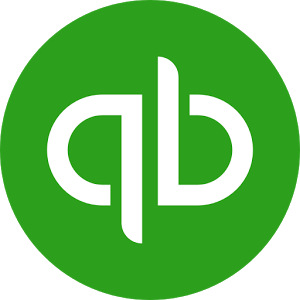How I Started A $28K/Month Boutique SEO Company
Hello! Who are you and what business did you start?
My name is Russell Michelson and I’m the founder of Paper Box SEO. We’re a boutique SEO agency based in Pittsburgh, Pennsylvania. Unlike most SEO agencies, we focus 100% of our efforts on SEO and don’t work in other types of online marketing like PPC or social media.
Most of our clients are small to medium-sized businesses who want to grow their organic traffic and get more customers. We almost exclusively work long term contracts for a fixed monthly fee. Our packages are all-inclusive, meaning they include on-page optimization, content creation, link building, and monthly reporting. At the moment, we’re doing $20k/month in revenue and our team consists of me, a full-time employee, and a part-time contractor who is our dedicated writer. We also have an accountant and web developer who we use on an as-needed basis.

What's your backstory and how did you come up with the idea?
Like many founders, I didn’t originally intend to be where I am today. It just happened over time. After graduating from college, I got a job in corporate communications at a large company. My year working there was one of the most formative experiences of my life. I hated it. I knew then that I would never be happy working for a company. I had to do my own thing. So I quit and did exactly that.
When you make your living doing one time projects, like building websites or consulting on projects, you always have to be on the hunt for new clients. With SEO, revenue is long term and accumulates.
Where I come from, nobody starts businesses. I can’t think of a single person I grew up with that doesn’t work for a large company today. It was because of this societal pressure that I didn’t take the leap earlier. But once I did, I immediately felt fulfilled like I never had before.
The only practical skill I had to offer at the time was WordPress web design. I had picked up some basic WordPress knowledge in college and had already made a few small websites for various projects, so I felt like I could do it professionally.
I knew I wouldn’t be making much at the outset, so I, along with my girlfriend, moved to Buenos Aires, Argentina to take advantage of the lower cost of living. While there, I scraped by making websites for small businesses and entrepreneurs, charging only around $1,000 per website.

After I finished a project, the client would always ask me how they can get people to the site. So naturally, I started teaching myself about digital marketing. I found that I liked it more and I was better at it than web design. So over the course of a year, I pivoted from web design to online marketing. I did everything: Google Ads, Facebook Ads, conversion rate optimization, landing pages, and of course, SEO.
Take us through the process of designing, prototyping, and manufacturing your first product.
I found myself focusing on SEO because I was intoxicated by the ability to change search engine rankings. It felt like I had magical power. I’d always thought rankings were determined by a higher being, out of our control. I never considered that someone, much less I, could single-handedly cause a site to get onto the first page of Google just by knowing which levers to pull.
I started teaching myself everything there was to know about SEO. I created websites and experimented with different SEO methods. I started following SEO communities online and asked strangers for advice on the Internet. It took at least a year of all that before I felt like I knew what I was doing.
Describe the process of launching the business.
When I started Paper Box SEO, it was just me doing what I’d been doing for years: freelancing. Except now I was focused on SEO. I had done web design under the name Paper Box Web Design, so I simply changed the website name to Paper Box SEO and updated the content on the site.
But to be clear, Paper Box SEO emerged over time, not overnight. Over the course of around 8 months, I slowly stopped doing other types of online marketing until I was only doing SEO. And several months after that, I decided to make it official and change the name to Paper Box SEO.
The subreddits /r/smallbusiness and /r/bigseo have been invaluable in helping me grow the business. They’re active communities where people have candid, insightful conversations.
The company has always been able to fund itself through cash flow. It’s a very low cost, low overhead business model. And the fact that all the work is done remotely, even to this day, makes the overhead even lower.
Since launch, what has worked to attract and retain customers?
Since the beginning, we’ve gotten most of our clients through Upwork. A lot of people don’t consider Upwork a place to find high-paying clients, and it’s true that the vast majority of people looking for SEO services on Upwork aren’t willing or able to invest much in SEO. But there are just so many people using Upwork, that there are still a ton of companies on the platform who are serious about SEO. By setting a high hourly rate and not having any negative reviews on my profile, I’m able to attract my ideal clients.
The rest of our clients have come from client referrals and a partnership with a PPC agency.
We retain clients in two simple ways: delivering results and giving them personal attention. Half of our clients come to us after throwing away a lot of money on SEOs who can’t or choose not to deliver consistent results (which is the majority of SEOs). That’s why our clients come to us and stay with us. We care about their success and overdeliver. I hate to disappoint people, especially people who rely on me. You could say I live in fear of disappointing clients, which while it isn’t the most enjoyable experience for me, results in high-quality service and high retention rates.
Every client who’s ever fired us has done so within the first 3 months. That happened mostly because I failed to set the right expectations. Once we get over the first hump and earn the client’s trust, they stay with us long term.
How are you doing today and what does the future look like?
Today, Paper Box is doing great. We’ve been profitable since day 1 and the profit margin is great. I expect overhead to go up as we grow, but I also plan on raising prices to cover that overhead. This is all to say I expect the margin to stay the same.
Our customer acquisition has been extremely simple since day 1: Upwork and referrals. On the one hand, this means the cost of acquiring customers is $0. On the other hand, we’re leaving a lot of opportunities on the table. Since we focus on those two channels exclusively, our website was bare bones and we had no presence on social media...until recently.
We just built out our website and have begun pursuing new ways of acquiring clients. So far, we tried cold emailing, but the results have been terrible so we’re tabling that for now. I’m optimistic that at least one of these strategies is going to work.
- Facebook Ads (a skill I still have from my PPC days)
- Asking clients for referrals and possible offering a referral bonus to them
- Forming strategic partnerships with other online marketing agencies (PPC, social media, web design, etc.)
- Pouring more resources into our Clutch listing
- Using Reddit to network and find leads
- And, of course, working on our own site’s SEO
In the short term, I want to establish clear processes so that we can more easily scale to better serve our growing list of clients.
Currently, I’m in the process of teaching my employees everything I know about SEO. I want them to learn from my experience so they can be just as effective, if not more effective than I am. Once we reach that point, I can focus on sales and communicating with clients. After that, I’d like to find someone to manage the relationships with clients so I can free up my time to focus on sales, marketing, and running the business.
Through starting the business, have you learned anything particularly helpful or advantageous?
From a business perspective, SEO is great because it lends itself to recurring revenue. When you make your living doing one time projects, like building websites or consulting on projects, you always have to be on the hunt for new clients. With SEO, revenue is long term and accumulates. That way, your revenue will in theory stay the same even if you don’t get a new client for 6 months or longer.
In retrospect, I would have learned SEO a lot quicker if I networked more. I’m an introvert, and working from home just exacerbates the tendency to shut myself off from others. I’m essentially 100% self-taught, which is an effective way to learn, but not the quickest. I would probably be more successful today if I networked more in the past. That’s something I’m working on doing more of in the future.
What platform/tools do you use for your business?
I find a lot of SEO tools save time, but aren’t as effective as good old fashioned manual research. An example of this is keyword difficulty metrics. It would be nice to be able to look at a single number and know how competitive a keyword is, but in reality, these metrics are unreliable. You really have to poke around a bit yourself to find out how competitive keywords really are. With that said, here are the tools we use religiously.
- Ahrefs
- Screaming Frog
- Hunter
- Local Viking
- Buzzstream
- Monday
- WP Engine
- Quickbooks
- Upwork
- PayPal
- Google Search Console
- Google Analytics
- G Suite
What have been the most influential books, podcasts, or other resources?
The subreddits /r/smallbusiness and /r/bigseo have been invaluable in helping me grow the business. They’re active communities where people have candid, insightful conversations. I like it because the content is unfiltered. It’s real people who have real businesses sharing their thoughts on a lot of important subjects. It’s a great place to network, get inspired, and get questions answered.
Advice for other entrepreneurs who want to get started or are just starting out?
The loudest voices in the world of entrepreneurship focus on shortcuts and easy paths to success. There are no shortcuts and trying to find them won’t get you anywhere.
All of the successful business owners I know have at least one marketable skill, worked hard, and offer their customers real value. You don’t have to reinvent the wheel to be successful. You’re more likely to succeed by doing something that already exists and doing it well. Being original is great, but not necessary. More important than originality is grit.
My other piece of advice comes from an anecdote. When I was working for corporate America, a woman on my team who was at the end of her career, retired. I’ll never forget what she said at her retirement party. “I can finally do all the things I’ve always wanted to do.” Hearing that inspired me to quit that job and do the things I’ve always wanted to do now. If you don’t have to wait until you’re 65, then don’t.
If you feel fulfilled being a business owner and you can make a living doing so, you’ve already succeeded. That’s something most workers never attain. You don’t need to have a million-dollar business to be successful. You just need to be doing what you want to do.
Are you looking to hire for certain positions right now?
I anticipate we’ll be hiring a part-time SEO associate this summer. Candidates don’t need to be SEO experts. What’s more important is a good work ethic and competence. If everything works out, this would become a salaried, full-time position before the end of the year.
Where can we go to learn more?
If you have any questions or comments, drop a comment below!

Download the report and join our email newsletter packed with business ideas and money-making opportunities, backed by real-life case studies.

Download the report and join our email newsletter packed with business ideas and money-making opportunities, backed by real-life case studies.

Download the report and join our email newsletter packed with business ideas and money-making opportunities, backed by real-life case studies.

Download the report and join our email newsletter packed with business ideas and money-making opportunities, backed by real-life case studies.

Download the report and join our email newsletter packed with business ideas and money-making opportunities, backed by real-life case studies.

Download the report and join our email newsletter packed with business ideas and money-making opportunities, backed by real-life case studies.

Download the report and join our email newsletter packed with business ideas and money-making opportunities, backed by real-life case studies.

Download the report and join our email newsletter packed with business ideas and money-making opportunities, backed by real-life case studies.


















